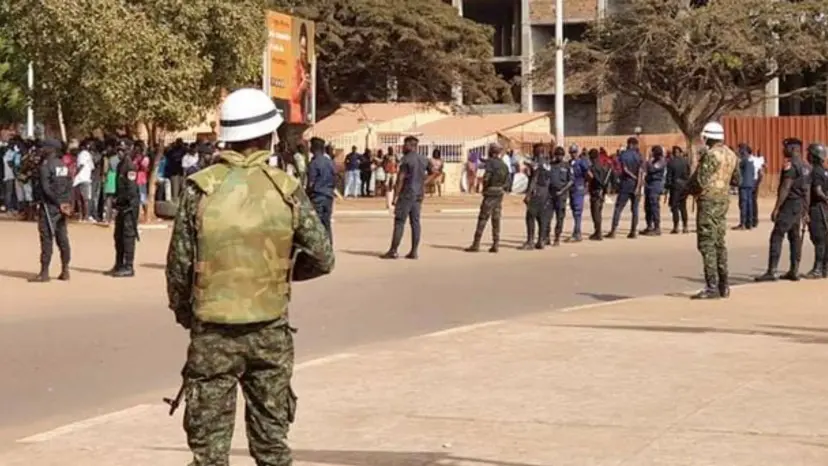BISSAU, Guinea-Bissau — Authorities in Guinea-Bissau said Friday that they had thwarted an alleged coup attempt, arresting several senior military officers accused of plotting to “subvert the constitutional order” just weeks before national elections.
The government announced that a number of high-ranking officers, including Daba Na Walna, the director of the Cuméré Military Training Center, were taken into custody after what officials described as a “meticulously planned operation” to dismantle the plot. Deputy Chief of Staff Mamadou Kourouma confirmed that additional officers — among them Domingos Nhanke and Mario Midana — were also detained.
“The Armed Forces have acted swiftly and responsibly to safeguard our Republic and its democratic institutions,” Kourouma said in a televised statement from the capital, Bissau. “We will not allow the enemies of peace and stability to reverse the progress our country has made.”
Officials have not disclosed how far the alleged plot advanced or whether civilians were involved. The government said investigations were continuing, and it vowed to prosecute anyone found complicit “to the fullest extent of the law.”
The arrests come less than a month before Guinea-Bissau’s presidential and legislative elections, set for November 23, and mark yet another turbulent chapter in the small West African nation’s volatile political history. Since gaining independence from Portugal in 1974, Guinea-Bissau has endured more than a dozen coups and coup attempts, making it one of Africa’s most politically unstable states.
President Umaro Sissoco Embaló, elected in 2020, has repeatedly accused political rivals of undermining his government. In December 2023, gunfire erupted in the capital after clashes between elements of the National Guard and the presidential security forces. Embaló called that episode “an attempted coup,” dissolved parliament, and later reshuffled his cabinet to consolidate control.
Analysts say this week’s developments underscore how fragile the balance of power remains between Guinea-Bissau’s military and its civilian leadership.
“The military has always been both a political actor and an arbiter in Guinea-Bissau,” said Josephine Mbaye, a regional analyst with the Dakar-based West Africa Policy Forum. “Every election cycle seems to awaken old rivalries within the security establishment.”
The Economic Community of West African States (ECOWAS), which has mediated several crises in Guinea-Bissau over the past two decades, condemned any attempt to seize power by force and called for “restraint and respect for democratic processes.” The African Union echoed that sentiment, urging authorities to ensure the investigation is transparent and to uphold human rights standards during the detentions.
Western diplomats privately expressed concern that the timing of the arrests could inflame tensions ahead of the vote. A European envoy in Bissau, speaking on condition of anonymity, said the crackdown “may deter real conspirators but could also intimidate opposition figures if not handled carefully.”
Despite the government’s confident tone, key details remain murky. Officials have not explained what triggered the investigation, how the alleged plotters planned to act, or whether they had significant backing within the armed forces. Some opposition members have warned against what they describe as “political dramatization” by the Embaló administration. The main opposition coalition, the PAIGC-led Inclusive Alliance, called for “a credible and impartial inquiry” to avoid turning the arrests into a “pretext for silencing dissent.”
Rights groups have also urged the government to guarantee due process. “Guinea-Bissau’s leaders must avoid repeating a pattern where accusations of coup plots are used to consolidate power,” said Fatou Diallo, West Africa director at Human Rights Watch.
The government has pledged that elections will proceed as scheduled. Security has been tightened in Bissau, with checkpoints set up near government buildings and the international airport. Regional observers are expected to monitor the vote amid fears that continued instability could derail democratic progress in one of West Africa’s most coup-prone nations.
For many citizens, the immediate concern is peace. “We are tired of hearing about coups,” said Awa Mendes, a teacher in Bissau. “We just want to vote and live without fear.”
As Guinea-Bissau braces for a critical election season, the latest alleged coup attempt serves as a stark reminder that, half a century after independence, the country’s struggle to separate politics from the military remains far from over.
